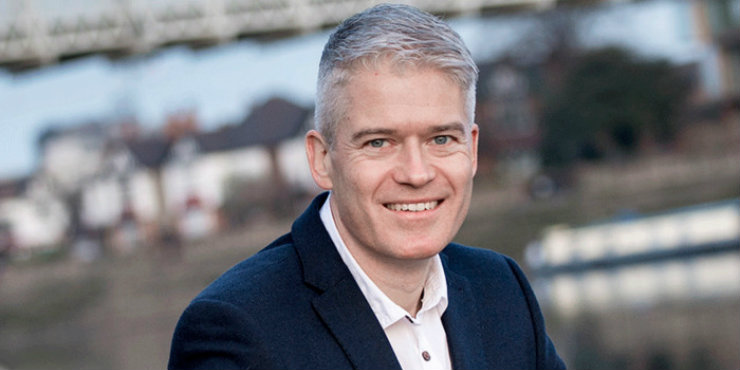
T. M Logan is the author of three thrillers, Lies, 29 Seconds and The Holiday, which is due out on 25 July. Formerly a national newspaper journalist, he now writes novels full-time and lives in Nottinghamshire with his wife and two children.
1. Who were your literary heroes and influences as you were growing up?
Some of the first books I can remember include Fantastic Mr Fox by Roald Dahl (which I’ve since read to my own children), the seven-book Narnia series by C. S. Lewis, countless Enid Blyton stories, Ursula Le Guin’s Earthsea books, Mrs Frisby and the Rats of Nimh by Robert C. O’Brien and Watership Down by Richard Adams.
From there I moved onto The Hobbit and The Lord of the Rings trilogy by JRR Tolkien, lots of other fantasy books and also science fiction – novels like The Man in the High Castle by Philip K. Dick and Brave New World by Aldous Huxley. I was in my early teens when I discovered Stephen King – starting off with It, Carrie, The Dead Zone, Misery and Pet Sematary – and I’m still reading his books today.
Now I tend to read thrillers, crime, historical, horror, some sci-fi and non-fiction books too. But the dominant genre for me is crime and thrillers, books like Gone Girl by Gillian Flynn, Dodgers by Bill Beverly and pretty much anything by Michael Connelly.
2. You used to work as a journalist for a national newspaper. Did you find the skills required for that job were transferable to your new career as a novelist?
I was a reporter for eight years and it’s helped me in many ways. As a journalist you learn to respect the reader, to use words as a bridge to connect with the reader rather than a barrier. You also learn to work to deadline; to expect your copy to be changed (and improved) by others as a natural part of the process; and you get into the rhythm of writing every day to make your living. All helpful for the would-be author.
3. We hear so much about ‘the twist’ in the latest thrillers. Is it tough to keep coming up with something new and surprising?
In a way it is difficult, because readers (myself included) have become used to anticipating the twist and so maybe it’s more difficult to pull off than it used to be. But I think in the same way that there are an infinite number of stories, there are also an infinite number of twists – the author just needs to be sneaky enough to take us by surprise in a legitimate way. Sometimes as an author that can be quite a mental challenge, but I love to be able to surprise people!
4. Your latest book is The Holiday. Can you give Suffolk readers an idea of what to expect from this one?
The Holiday is a psychological thriller in the style of my debut, Lies – fast-paced, addictive and unpredictable. It’s set in the south of France where four best friends are holidaying together with their families, a joint 40th birthday celebration in a luxurious villa on the Mediterranean coast. But as the week goes on, their friendship starts to unravel amid secrets, betrayal and lies, until it becomes clear that someone in the group is prepared to kill to keep a long-buried truth from coming out…
5. Your books are hugely successful around the world. Do the settings and plot translate directly or do they have to adapt for say, the South Korean audience?
I think the books tend to translate well to other countries as the stories are universal. They are about relationships: with Lies, the relationship between a man and his wife; with 29 Seconds, the relationship between a woman and her boss; with The Holiday, the relationship between four lifelong friends. So I think the stories are readily accessible to readers wherever they are, and the settings – London for Lies and 29 Seconds, the south of France for The Holiday – are fairly recognisable to people wherever they happen to be reading.
6. Has a book ever changed your life or made you think differently?
A Simple Plan, by Scott Smith. It grabbed hold of me in such a way that it became like an addiction – I would read on the bus on the way to the office and then carry on reading it under the desk when I was supposed to be starting work. I got into a bit of trouble doing that, but I remember it was the first time that I thought maybe one day I’d be able to write books that had the same effect on people. It’s what I try to do now.
It was about that time that I read Harlan Coben’s Tell No One, which featured his trademark combination of a gripping story, great dialogue, compelling bad guys and a protagonist you’re rooting for from page one. It showed me how much power a good thriller can exert over the reader.
7. Can you tell us something that your readers may not know about you?
As a boy, I didn’t want to be a writer - I wanted to be an astronaut. I wanted to see the earth from space and be weightless (I was reminded of this again watching the amazing Apollo 11 at the cinema recently). But it turns out there aren’t many astronauts who are rubbish at maths and science. So I thought I’d try to be a journalist instead.
